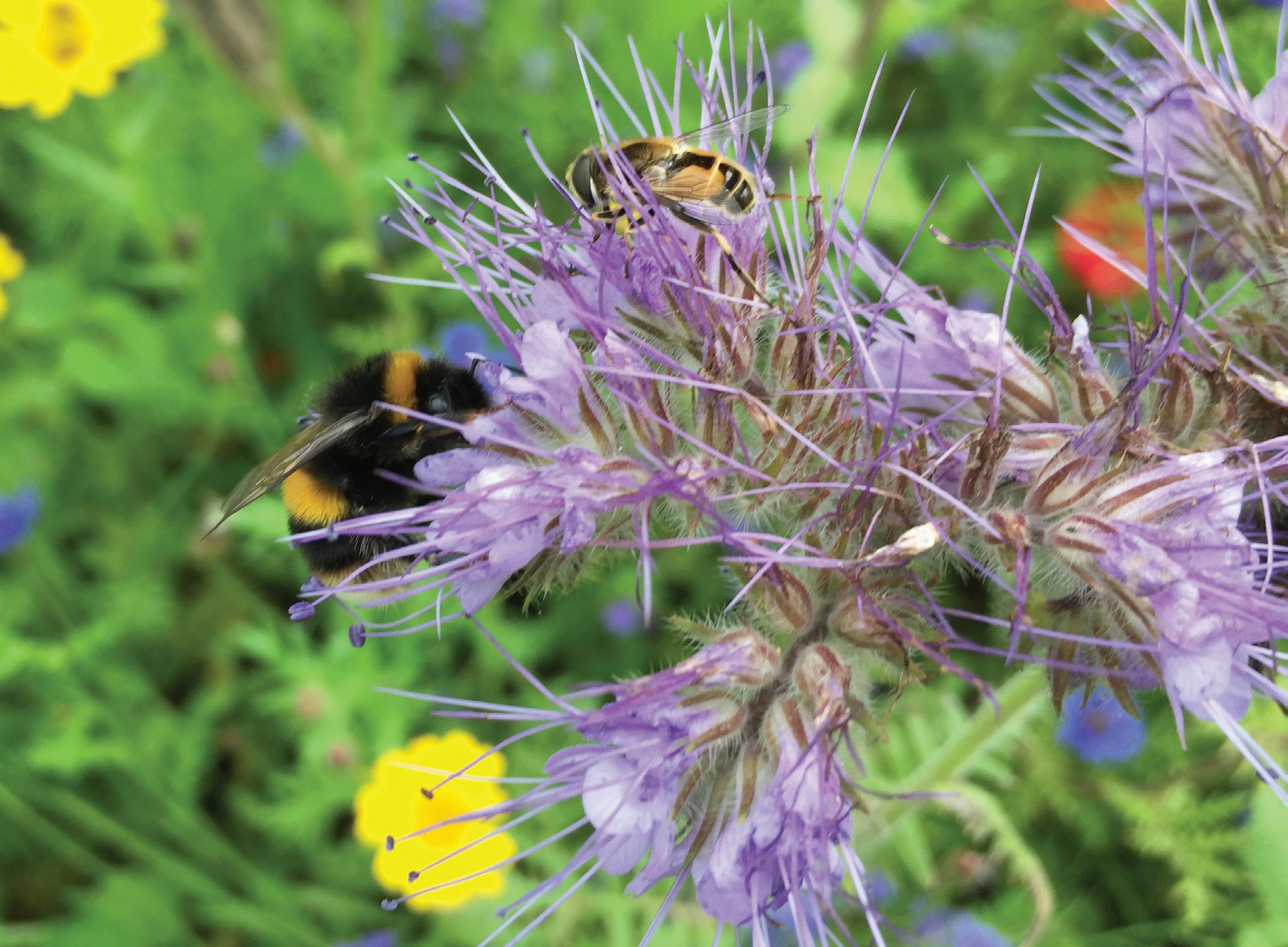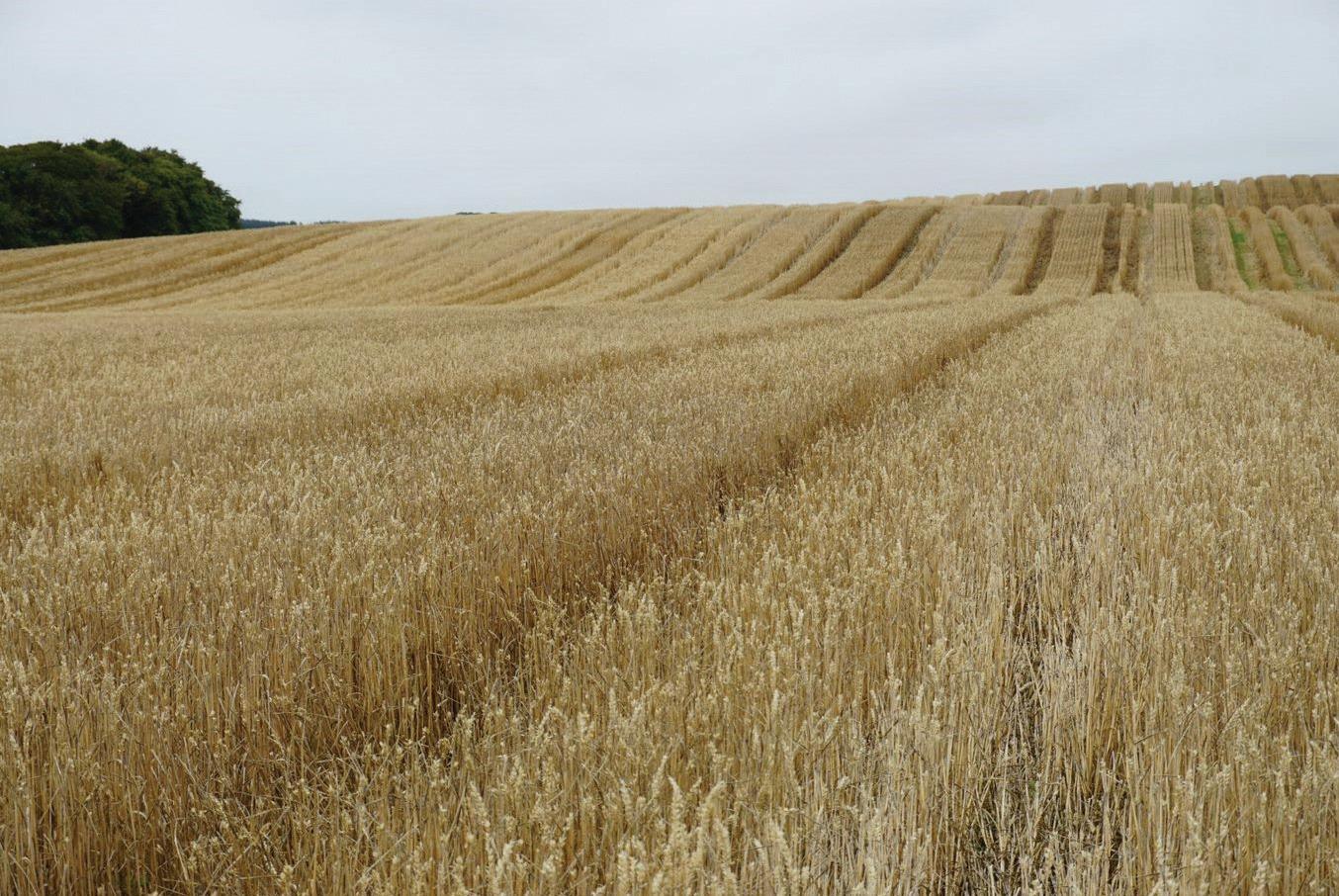
2 minute read
Farming of the future: Regenerative agriculture
Right across the sector, in many publications and throughout the length of the supply chain, regenerative agriculture is being cited as the future of farming. The movement has gained significant momentum, but what is regenerative agriculture and is it really the future for Scottish Agriculture?
Broadly speaking regenerative agriculture is a farming system which adheres to five core principles. These include, limiting soil disturbance, developing armour on the soil surface, building crop diversity, keeping living roots in the soil and integrating animals.
These principles mean many things to many people, and often context is lost between businesses. However, the level of flexibility this method of farming has, is arguably the movement’s biggest asset, allowing farmers to adapt the principles to their own businesses. The principles can also provide a ‘pick n mix’ approach, reducing barriers to trying different farming system, allowing farmers to build confidence.
Over the past five years, SAC Consulting has been working with five farmers on their journey to becoming increasingly regenerative, under the ‘Farming for a Better Climate’ initiative – a programme which aims to help farmers find practical ways to cut carbon, increase sustainability, and move towards netzero emissions within their farming systems.
The project has been overwhelmingly positive, with the initial group being adopted into the FAS Connect programme under the Farm Advisory Service (FAS) and quadrupled in numbers as interest has grown. However, there have also been some challenging conversations, particularly around future support mechanisms, the development of markets for novel crops and around the practical challenges this system can create.
To develop regenerative farming systems in Scotland, it is essential to set and monitor clear objectives upon which a farming system can be measured. To do this, it’s worthwhile returning to the definition of sustainability to understand how a business can enhance its sustainability to become regenerative.
There are three elements to sustainability: environmental, social, and economic. Being sustainable means that we can meet the needs of today, without compromising the ability for future generations to meet their own needs. Therefore, to be fully regenerative, we need to be able to meet our own needs, whilst enhancing our environmental, social, and economic standing for future generations.
Often, the Regenerative Agriculture movement focuses on environmental elements such as the improvement of soils through reduced tillage or cover cropping, however, we need to focus on the broader elements of food production before we can classify business as regenerative.

Although a mindset change is usually required of this system type, beyond the farm there are few examples of social regeneration. Furthermore, the volatility of markets over the past two years, raises serious questions about the economic regeneration of farming businesses, while so many are still reliant on subsidy.
Throughout the ‘Farming for a Better Climate’ project, we have made huge progress in getting the environmental model of regenerative farming to fit. It has taken a significant effort by the original five farmers within the group and a lot of trial and error; however, what the group have demonstrated is that this system is a feasible alternative to conventional farming in Scotland.
Nevertheless, for producers in this country to be fully regenerative, it will take a concentrated effort from the entire supply chain. If regenerative agriculture is the future of farming, then the rest of the industry needs to support these growers to ensure that they can add social and economic regeneration to the existing environmental regeneration that is underway. This change will take a concentrated effort from not only the primary producers, but also the business supplying and purchasing for farms across the country.
For more information, visit www.farmingforabetterclimate.org
Get in touch
zach.reilly@sac.co.uk










